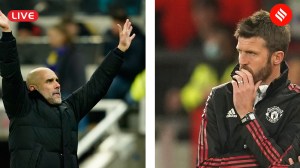Structural adjustments
The emergence of the former economy minister of Spain, Rodrigo Rato, as the finalist in the race for the post of managing director of the In...

The emergence of the former economy minister of Spain, Rodrigo Rato, as the finalist in the race for the post of managing director of the International Monetary Fund marks a turning point in the 60-year history of the Fund.
Ever since it was created in 1945, along with the World Bank, the management of the two multilateral institutions has reflected the structure of power in the post-war international economic system.
While the US has retained control of the Bank, and also has a decisive veto power in the functioning of the Fund, Western Europe has retained the top job at the Fund.
While Rato8217;s nomination for the post does not as yet signal an end to this transatlantic condominium, the events that preceded his nomination and the procedure adopted to secure support for him show that the US and EU can no longer take other countries for granted in the running these institutions.
The formal candidature of the Egyptian economist, Mohamed El-Erian, establishes the principle that any qualified non-European has the right to run for this post. The fact that Rato had to formally meet up with representatives of developing countries also establishes a precedent that the EU cannot take its claim for granted.
Rato has made it this time because many Latin American, Asian and African countries decided to support him, forcing other Europeans, to withdraw from the race.
The debate surrounding the MD8217;s nomination has once again brought to the fore the global distrust with the IMF in the aftermath of the Russian, Asian and Latin American financial crises.
In fact, so low had the IMF8217;s reputation fallen that it was itself forced to appoint an Independent Evaluation Office, under the directorship of Montek Singh Ahluwalia, to take stock of its track record and recommend reform. Not surprisingly, therefore, many Asian nations, particularly China and India, decided to build up huge foreign exchange reserves.
This has recently been attributed by RBI Governor Venugopal Reddy to their lack of faith in the international financial architecture. Clearly, Rato8217;s first task is to regain credibility for the Fund.
- 01
- 02
- 03
- 04
- 05































